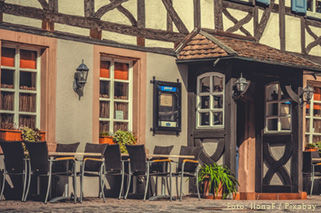Since November 2, 2020, the hospitality industry has been in a so-called lockdown, has been affected by far-reaching restrictions since the beginning of the pandemic and will continue to be affected by many restrictions until the end of the pandemic. For many operators and owners of gastronomic businesses, this results in fundamental existential fears, despite governmental offers of support.
Cooperatives offer long-term security and stability in many areas of the economy and society and represent a place of sustainability. For pubs and restaurants, too, the legal form of the registered cooperative proves to be particularly resilient, especially in times of crisis such as the current Corona pandemic. Concrete safety and security potentials result from the self-organization in board of directors and supervisory board, a risk-conscious management, a low profit requirement, the often lived voluntary work, the low liability risk, the spatial anchoring and from the fact that the members are often at the same time regular customers.
ISS researchers Joschka Moldenhauer and Johannes Blome-Drees investigate "cooperative restaurants as places of successful cooperation," which can be seen as an expression of a form of civic engagement that enables participation in local supply and the improvement of social opportunities in rural regions. Their research is part of the BMBF-funded project "Teilgabe. The civic, cooperative and social entrepreneurial creation and design of public welfare-oriented supply". In collaboration with the University of Hamburg, the Institute for Ecological Economy Research (IÖW) and the cooperative expert Burghard Flieger, Moldenhauer and Blome-Drees investigate how the outputs and effects of civic economic activity can be assessed and to what extent these are possible contributions to the creation and maintenance of the common good or commons. By comparing different strategies and forms of action, the project aims to fathom the extent to which new forms of civil society economic activity are not limited to life assistance and specific problem solutions, but why and how structure-building approaches to shaping the common good are realized.
